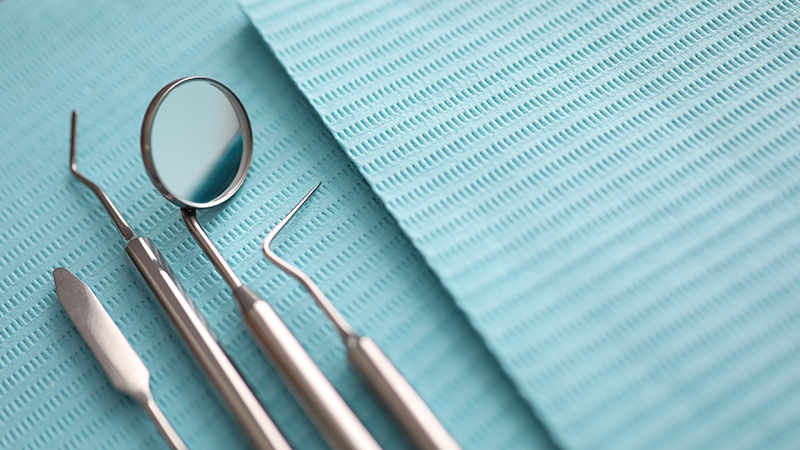How Gum Disease Gets Treated

Did you know that gum disease (or periodontal disease) affects almost half of adults aged 30 and older in the U.S.? Yes, despite being a preventable condition, it is far more widespread than many think. Fortunately, hope is not lost if you find yourself with gum disease. Our Jackson, MI, dentists can help get your oral health back on track.
Aside from recommended at-home oral care, here is how gum disease is treated by our team.
Differences Between Gingivitis & Periodontitis
There are varying degrees of gum disease, ranging from mild gingivitis to long-term and much more serious periodontitis. Unlike later stages of periodontitis, gingivitis is reversible if treated promptly by our dentists and disciplined at-home oral care is practiced. It’s not too late to turn things around if we tell you that you’re showing signs during your check-up!
The onset of gingivitis can be subtle at times and often involve no discomfort but some symptoms are easier to notice. For instance, red, swollen gums that bleed easily or sensitive teeth are indicators that your oral hygiene has been less than stellar. You’ll want to have your teeth and gums checked out by our dentists as soon as possible before your condition worsens.
If ignored, advanced periodontitis can cause:
- Bone and tissue loss
- Tooth loss
- Teeth that move or are loose
What’s Expected With Periodontal Treatment
Whether you were shocked to discover you had gum disease or not, the main goals of treatment remain the same. We want to restore your oral health to where it should be and help you manage the condition over time. Ultimately, the frequency of deep periodontal cleanings will depend on how severe your gum disease is, so while some may visit 1-2 times a year, others may need to have the procedure performed every 3-4 months.
Regardless, treatment is designed to:
- Reduce swelling, the depth of pockets formed, and the risk of infection
- Encourage reattachment of healthy gums to teeth
- Stop disease progression
Our dentists will evaluate your condition before determining if either a regular teeth cleaning or scaling and root planing is necessary. We’ll also discuss whether additional products or medications like specialized mouth rinses or toothpastes would positively benefit your oral routine.
Scaling and Root Planing: What Is It?
A procedure commonly used to treat chronic cases of gum disease is scaling and root planing. This treatment consists of a two-part deep cleaning below the gumline and begins with the scaling portion.
To ensure you remain comfortable throughout the procedure, we will administer a local anesthetic before getting started. If at any point during the cleaning you feel pain, please don’t hesitate to let our dentists, assistants, or hygienists know. We can remedy the situation with more pain medication. Dental sedation is also an option going into this process if you require additional methods of relaxation.
Our dentists will first remove all plaque and tartar above as well as underneath the gumline. Affected gums tend to separate from the teeth and deep pockets form between the two, thus inviting more infection. That’s why it is so important to clean down to the bottom of the pocket during the scaling step.
Next, our dentists will transition into root planing. This part of the procedure involves smoothing out the teeth roots so the gums are able to reattach to your teeth. Depending on how advanced the infection is, the process of scaling and root planing may take multiple visits to our Jackson, MI, dental office.
How You Can Reverse Early Gum Disease
Assuming your condition has not yet progressed beyond gingivitis, there are things you can do at home with regards to oral hygiene. For starters, be sure you are brushing your teeth at least twice a day and flossing daily.
Read More → Toothbrush Selection Tips for the Best Clean
When doing either, remember to practice good technique and aim to reach the nooks and crannies in between teeth. Our dentists and hygienists can help show you the most effective ways to brush and floss if you’re unsure. Aside from brushing and flossing, we also recommend you try to use an antibacterial mouthwash to rinse your mouth at least once a day.
Taking time out of your day to properly clean your mouth is important. A solid routine every day will benefit you and work to fight bad breath and plaque buildup.
Make an Appointment
Both early and later stages of gum disease can be treated and managed, respectively, by our dentists in Jackson, MI. Call The Dental Experience today at (517) 787-5367 or request an appointment online to seek the care you need.
This blog post has been updated.

